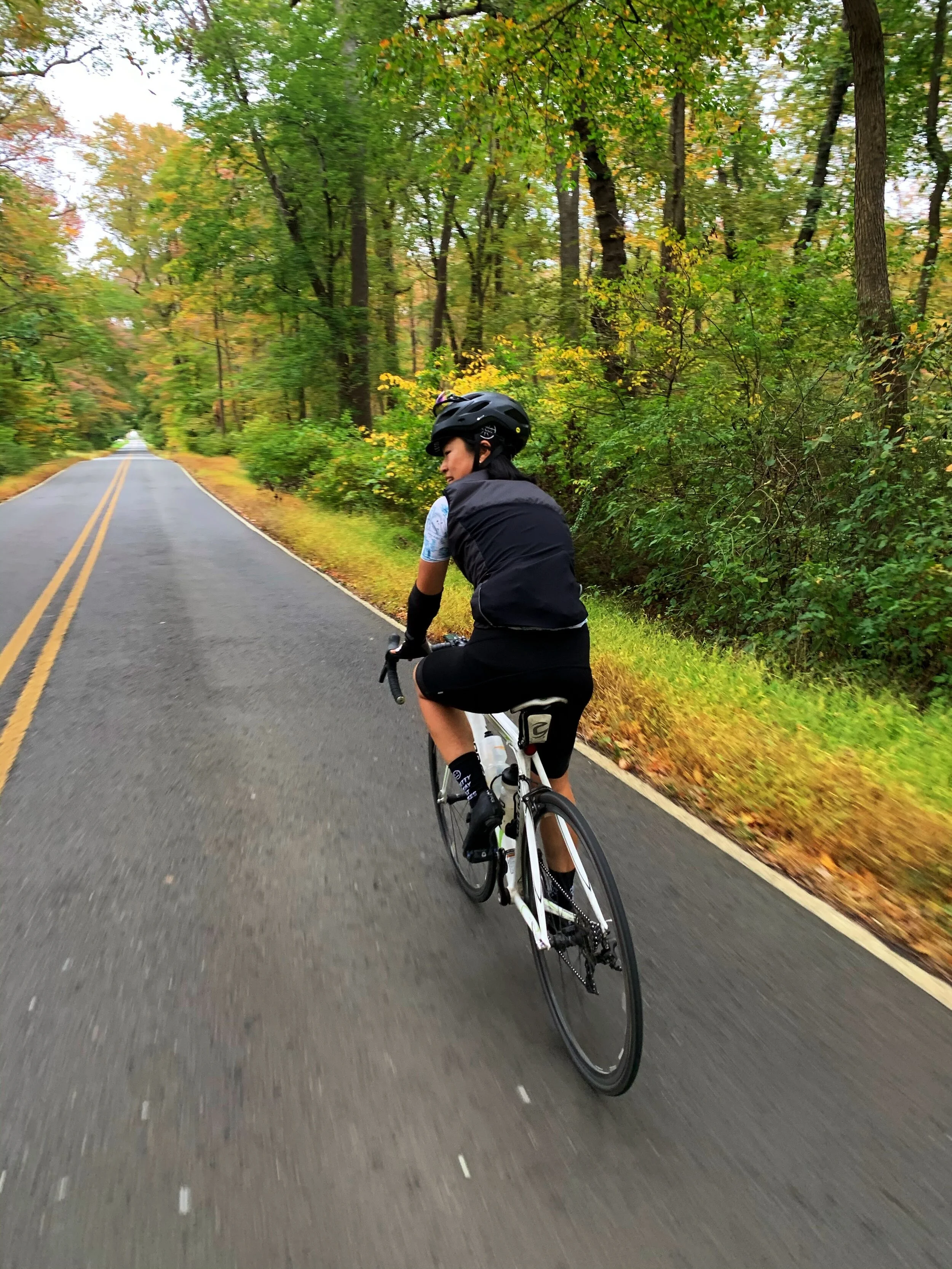Intersectionality in Cycling
Intersectionality in Cycling: Racism Against AAPI Women from the Street to the Bike
It’s hard for me to write about racism as an AAPI woman or as an AAPI cyclist. Most of it is mundane, so commonplace it blends into the fabric of a lifetime of being ‘othered’, told implicitly that I don’t belong in this country, and stereotyped as weak.
If I’m being honest, part of the reason I began cycling as a commuter was for safety. I’ve had and continue to have experiences being catcalled or touched on the street and on public transport: a man who yelled, ‘China!’ at me on the street (Midtown, 8am); a man at the LES community center I volunteered at who commented on Asian women’s bodies, then asked where I lived (I asked a friend to stay on the phone with me as I walked home alone that night); a man who called me 小三 (“xiao san”), a derogatory term meaning the third person in a relationship (e.g., a prostitute); a man who reached out his hand and touched my inside thigh as I walked in the Kips Bay area; a man standing behind me on a crowded 6 train uptown who put both hands on my waist and I was so speechless I couldn’t scream, could only silently extricate myself and squeeze my way to the other side of the train; two large men in Bushwick who approached me and my friend (also an AAPI woman) on either side of us and commented on how beautiful we were, trapping us. Being a woman on the street feels like being a chainlink fence that men instinctively want to run their fingers through: public property.
I felt safer on a bike. I can outride most catcallers, who are usually pedestrians. And while most people concerned about the safety of biking in a city were thinking of traffic and car accidents, I thought that was better than the alternative, which is to be on a train alone with a man.
And yet, racism and sexism has continued to intersect in new ways on the bike. A man once rode up to me on 2nd Ave and said, “girl, I’ve been following you for 20 blocks and you really know how to ride that bike!” I was concerned that he had been following me for 20 blocks, annoyed that he seemed to believe women couldn’t ride bikes. Another man on an e-bike on Myrtle Ave told me I looked “strong” and he was impressed I could keep up with him on the slight incline: the implication, of course, is that women aren’t expected to be strong. A man at the foot of the Manhattan bridge asked me (this time clad in cycling kit, on a road bike), what was the longest I’d ever ridden. “So far about 100 miles,” I said. “Wow!” he replied. I wondered if he asked men on bikes the same.
The more egregious incidents on a bike: once, on my morning commute to work, I cut a little too quickly onto Park Ave, effectively cutting off a (white male) cyclist. This was my fault, and I apologized. But that wasn’t enough for him: he began yelling at me, and I shut down. I stopped responding, which made him more upset. “Do you even speak English?” he screamed. “Asians have no spatial awareness!” I tried to get away from him, but at each red light he caught up to me. My vision narrowed until all I could see was the strip of road directly in front of me.
More recently, in October 2020, I was riding down 5th Ave in Midtown when a young white man threw his skateboard in my path, trying to crash me. I braked and stopped in front of him. “Fucking chink,” he said. I reported this to stopaapihate.org as physical assault: my first time reporting anything. I wanted to document this as part of a fresh wave of anti-AAPI violence. Anti-AAPI racism and violence is not new (it has been around since the country’s founding, in different forms: Asian women not being allowed into the country because they were thought to all be prostitutes, yellowface in Hollywood, the 1882 Chinese Exclusion Act which was repealed only in 1943, Japanese internment) -- but suddenly it is more visible.
I’ve been grateful to have this bike team, because there is power, and empowerment, in numbers. I hope we can continue to inspire and welcome more women, trans, and femme cyclists. Visibility is a form of power, and I hope we’ll show people that we can be on bikes, and be pretty okay at bikes, too.
Organizations:
@sendchinatownlove: local org supporting the digitization of local AAPI businesses & fighting pandemic xenophobia
@heartofdinner: local org working to combat food insecurity and isolation within NYC's elderly Asian American community by delivering meals
@safewalksnyc: local community safety initiative providing accompaniment for New Yorkers who would like a SafeWalk to their subway station (currently in MN Chinatown & Bushwick)
@napawf: national org supporting reproductive health & rights, economic justice, and immigrant rights & racial justice
@advancingjustice_aajc: national org fighting for immigrant justice and voting rights
@redcanarysong: grassroots collective organizing for decriminalization and labor rights for Asian and migrant sex workers


